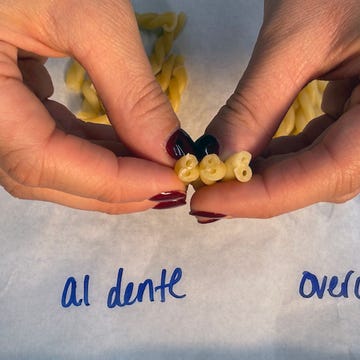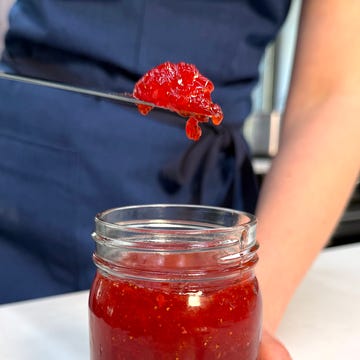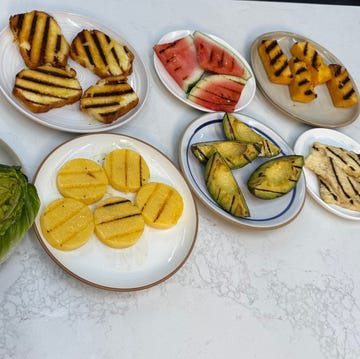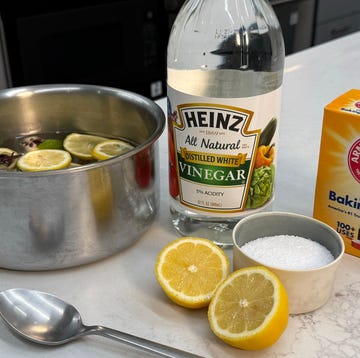Taking care of your health often requires a multifaceted approach—from regular doctor’s visits to exercise to prescription medication. Medical professionals across multiple disciplines also advocate for a balanced and nutritious diet to maintain your overall health. But sometimes even your favorite foods can do more harm than good.
The food we eat is packed with different nutrients that impact our bodies in their own ways. When you take medication and eat certain foods, they can interact negatively and affect the efficacy of your medication or induce unpleasant side effects. And some of the most common culprits are ingredients you may already have in your kitchen.
We consulted Dr Andy Franklyn-Miller, MBBS, PhD, MRCGP FFSEM, a dual board-certified Sports and Exercise Medicine Physician and Chief Medical and Innovation Officer at Nuritas, to break down some of the most common foods that can interact with medications.
But first, a disclaimer: this is by no means an exhaustive list of ingredients or a substitute for medical advice from your own healthcare team. When you start taking a new medication, we suggest you consult your doctor or pharmacist about what foods to look out for and how to adjust your diet accordingly. Depending on the medication and your own individual care plan, those adjustments can range from avoiding a food entirely to reducing your intake to carefully timing the consumption of your food with your doses.
Grapefruit
If you take prescription medication, you may need to put down your paloma. Grapefruit, as well as its juice, is a common ingredient that interacts with a wide range of prescriptions. “Grapefruit inhibits the enzyme CYP3A4 in the liver and intestines, which metabolizes many drugs,” Franklyn-Miller says. “This can lead to higher drug concentrations in the bloodstream.”
Without this enzyme, your medications will accumulate and linger in your bloodstream, which can increase your risk of side effects. Grapefruit causes interactions across several drug categories, including statins, calcium channel blockers, and immunosuppressants.
Dairy Products
Calcium has long been heralded as an essential mineral, but it may have less than ideal effects if you take certain antibiotics. “Calcium-rich foods like milk, cheese, and yogurt can bind to antibiotics such as tetracycline and fluoroquinolones like ciprofloxacin, forming insoluble complexes that reduce drug absorption in the gut,” Franklyn-Miller says.
The same goes for any foods supplemented with calcium, like certain varieties of orange juice and many almond milks.
Leafy Greens
A general rule of thumb is that darker greens have more nutrient density. One of the most common nutrients is vitamin K, which plays an essential role in blood clotting and bone health. But if you take certain anticoagulant blood pressure medications, vitamin K is more harmful than helpful.
“Foods like spinach, kale, and broccoli, high in vitamin K, can counteract the effects of anticoagulants like warfarin, which relies on inhibiting vitamin K-dependent clotting factors to prevent blood clots,” says Franklyn-Miller.
Alcohol
Medical professionals warn about the adverse health effects of consuming large quantities of alcohol, which is classified as a carcinogen. But beyond increasing your risk of cancer and organ damage in the long term, alcohol also can have a significant impact on your prescription medications in the short term.
“Alcohol can amplify or diminish the effects of medications,” Franklyn-Miller says. “For instance, it enhances the sedative effects of benzodiazepines like diazepam and increases the risk of liver toxicity when combined with acetaminophen.” Alcohol also greatly increases the sedative effects of melatonin, which is why Franklyn-Miller suggests the use of other natural peptides as alternative sleep aids.
Aged, Cured, & Fermented Foods
Some of the oldest and most prevalent food preservation techniques, like aging, curing, and fermenting, lead to the development of the amino acid tyramine. Tyramine can be found in large quantities in foods like cheese, soy sauce, sauerkraut, sausages, and different types of alcohol. It’s a natural byproduct of these preservation processes, but tyramine also interacts with particular medications.
Franklyn-Miller says tyramine-rich foods “can cause dangerous blood pressure spikes in patients taking monoamine oxidase inhibitors (MAOIs), used for depression or Parkinson’s disease.”
Again: this list isn't comprehensive, nor is it meant to replace guidance from your doctor or medical team. If you have any questions or concerns about how your medications may interact with certain foods, always consult your healthcare provider before making any changes to your diet.


















